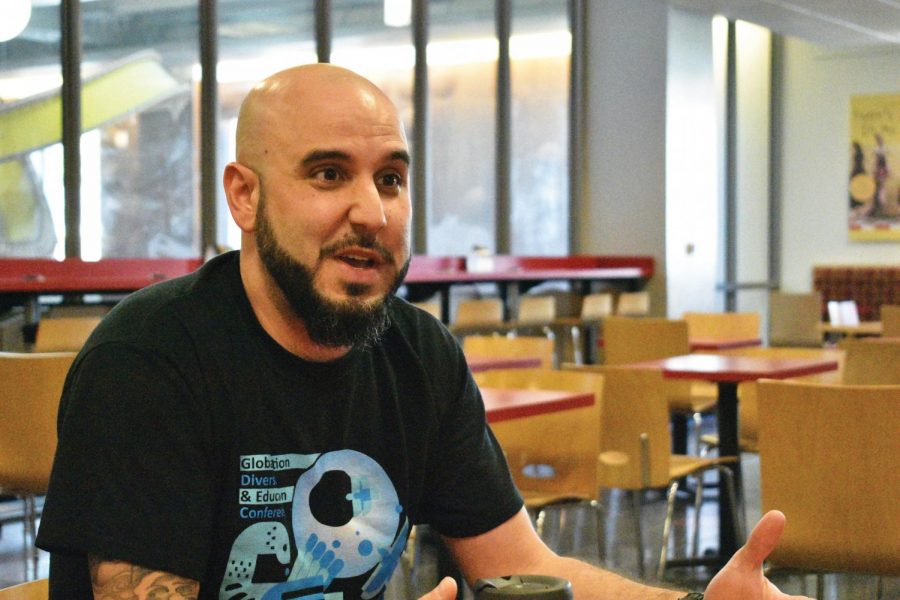Cultural diversity should explore gray areas, open dialogues
Recognizing varied backgrounds helps us learn about each other
DYLAN GREENE | THE DAILY EVERGREEN
John Lupinacci, assistant professor of cultural studies and social thought in education, talks about the importance of considering various cultural and individual backgrounds.
May 10, 2018
We have a tendency to alienate people in the endeavor to create an understanding towards cultural diversity.
Instead of teaching, we’re arguing. We’re closing any lines of communication and understanding towards a healthier cultural environment by punishing instead of responding with open-mindedness. We’re also not understanding that, in this modern world we live in, there are cultural gray areas we need to take note of as well.
I will never claim to be the ultimate authority on this. However, I was raised in an area where the Native American culture was integrated into our society, and I had a lot of exposure to their traditions and beliefs. I am very European in my heritage – I cannot argue to be Native American — but through this exposure I can share at least a small cultural understanding with them without the genetic history of it. And because of this, I am in love with their rich history and culture. I feel a special connection with it. I am still constantly studying and learning about it.
This is found in many places. We have people interacting with multiple cultures throughout their lives, yet by policing them into their own stereotypes we are severely limiting our opportunities to learn and understand each other.
John Lupinacci, assistant professor of cultural studies and social thought in education, said it’s all about encouraging safe spaces and understanding that it is a conscious move on our part to recognize the various cultural backgrounds of everyone we meet.
“If we really commit to recognizing differences and valuing them, then we have these spaces where it all comes to a head and we learn together how to practice and work with differences,” Lupinacci said. “We open up to what are different ways of knowing, being and understanding what our purposes and places are in the world.”
While we will run into people that will argue and anger us, we cannot immediately jump to conclusions, and at the same time, we don’t need to constantly be on guard. We don’t need to use so much energy to pick people’s words apart to find the flaw, especially if it is small and obscure. We don’t need to put each other back in society’s boxes. We need to support. Fighting alienates each other further and is ruining the cause.
“In an educational environment, the student should be emotionally, socially, intellectually, politically recognized and empowered,” Lupinacci said. “A learning space should be recognized as a place to respect the opinions and differences and recognize why people think what they think. It isn’t anything goes, but getting to where we learn as a collective together is through not always being right and learning from one-another.”
I love being introduced to new cultures. I love learning about the heritage of a person, and learning about their customs and traditions. It is the amazing gift of humanity. We need to share this with everyone, patiently.
Give people the experience of what makes your culture so unique, and understand that being combative is often a response of discomfort. Understand where they’re coming from. So much knowledge – so many new doors – will open if we stop making people feel ashamed and start to teach them the importance of the unique diversity we have.










